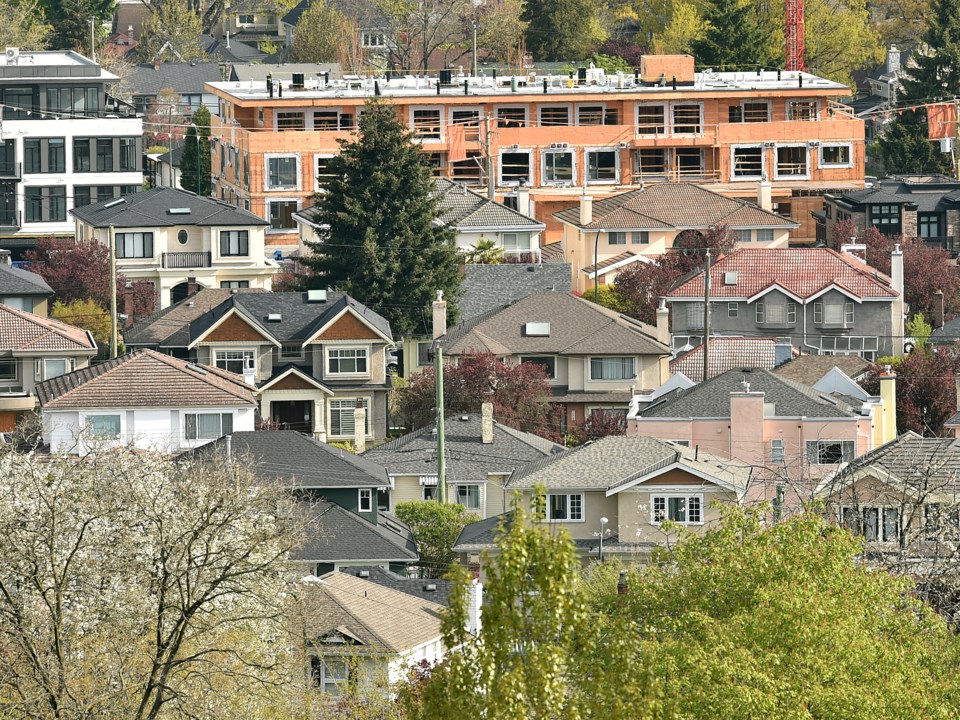The city is considering increasing the age restriction for applicants interested in operating short-term rental businesses in Vancouver after a 16-year-old boy attempted to secure a licence for his family’s laneway house.
Koji Miyaji, the city’s deputy chief licence inspector, told a panel comprised of three city councillors that the boy’s application was the first of its kind since the city enacted a bylaw in 2018 to regulate the industry made popular by Airbnb and other online rental platforms.
“We were very curious, frankly, to speak about how a minor is going to now run a short-term rental activity at that particular residence,” Mijayi told the panel at a June 15 review of the boy’s application for a laneway house on West 32nd Avenue.
Miyaji said the city’s short-term rental bylaw never considered an age restriction but noted Airbnb and VRBO both require hosts to be at least 18 to operate on their sites. The city is now considering setting the minimum age requirement at 18.
“It’s currently being strongly discussed,” he said.
Principal residence
Vancouver Is Awesome has chosen not to name the boy or his mother to protect the boy’s privacy, although the boy did appear via video link at the hearing, which is a matter of public record.
The city’s case against the boy, as outlined by Miyaji and city prosecutor Robert LeBlanc, was that he couldn’t prove the laneway house was his principal residence, which is a requirement to obtain a short-term rental licence.
An inspection of the residence found no food in the fridge or cupboards and virtually no personal belongings, said Miyaji, describing the laneway house as a sanitized unit.
The city also had concerns that the boy’s mother had previously operated a short-term rental business out of the laneway house and continued to do so after she cancelled her licence in March — the same month her son later applied for a licence.
“There was a flip-flop essentially of how it was operated, who was operating it on the same property and under the same family,” said Miyaji, noting at one point in the investigation the boy’s mom allegedly divulged that she and her children all lived in the main house on the property.
“We just did not believe [the boy] was living there.”
Private school
Short-term rental licences are issued automatically until the city receives a complaint or something about the application triggers an investigation and inspection of a property.
The boy, who is a student at a Vancouver private school, told the panel he lived in the laneway house in preparation for living on his own at university. He also said counsellors and health providers recommended he live in the laneway house because his obsessive compulsive disorder was disruptive to the family.
“When I'm not here [at the laneway house], I would often be staying at my aunt's house or my grandparents, or our nanny would come stay here for the remainder of time,” the boy said.
“When we're away, I would often rent the house out because we would be gone for two to three weeks. So it's just for profit towards my mom, since she actually owns the house.”
The boy clarified later the money earned through short-term rentals would be used to help fund university for him and his two siblings.
'I'm 16 years old'
Coun. Michael Wiebe asked the boy what proof he had that the laneway house was his principal residence, with Miyaji stating earlier how the boy’s age prevented him from securing legal documents with the laneway house’s address.
“I'm 16 years old,” he said. “I haven't really been educated on this. I don't know how I'm supposed to provide proof. I'm just trying to rent it out. I do stay here four to five times a week and my mom ultimately owns the property, so I don’t know.”
Coun. Rebecca Bligh cited age in her reasons for not approving the boy's application.
“It's fair to say that that the discrepancy around the age doesn't line up,” Bligh said. “Certainly for me, it gives us pause to suggest that we need to resolve that discrepancy within our bylaws to avoid these situations.”
Added Bligh: “It would not be the correct decision to issue a short-term rental license based on that because somebody else would have to actually manage the Airbnb or the short-term rental, wholly based on age.”
'Manipulation of circumstances'
In his closing remarks, LeBlanc recommended the panel not grant the boy a licence.
“With respect, I think that there's been a little bit of a manipulation of the circumstances here,” LeBlanc said.
“I'm not saying that anything nefarious has been done…I appreciate the fact that there may be some benefit to [the boy] acclimatizing himself — and his particular condition — so that he can then move on to live at university. But that doesn't make it a principal residence.”
Added LeBlanc: “I certainly encourage him to continue doing that if it's going to be beneficial to his health, but it doesn't entitle him or his mother — by extension — to treat that as his principal residence, and then rent it out for short term purposes and deprive the city of permanent housing stock.”
The city first began regulating short-term rentals in April 2018.
Under the bylaw, a person who provides temporary accommodation in a dwelling unit other than a bed and breakfast or hotel is deemed a short-term rental operator and is required to obtain a business licence.
The accommodation must be provided in the operator’s principal residence. The bylaw says an operator can rent their entire home, or a room within that home, for less than 30 consecutive days at a time.
The intent of the bylaw was to regulate the industry while also encouraging homeowners to put their suites on the rental market.




